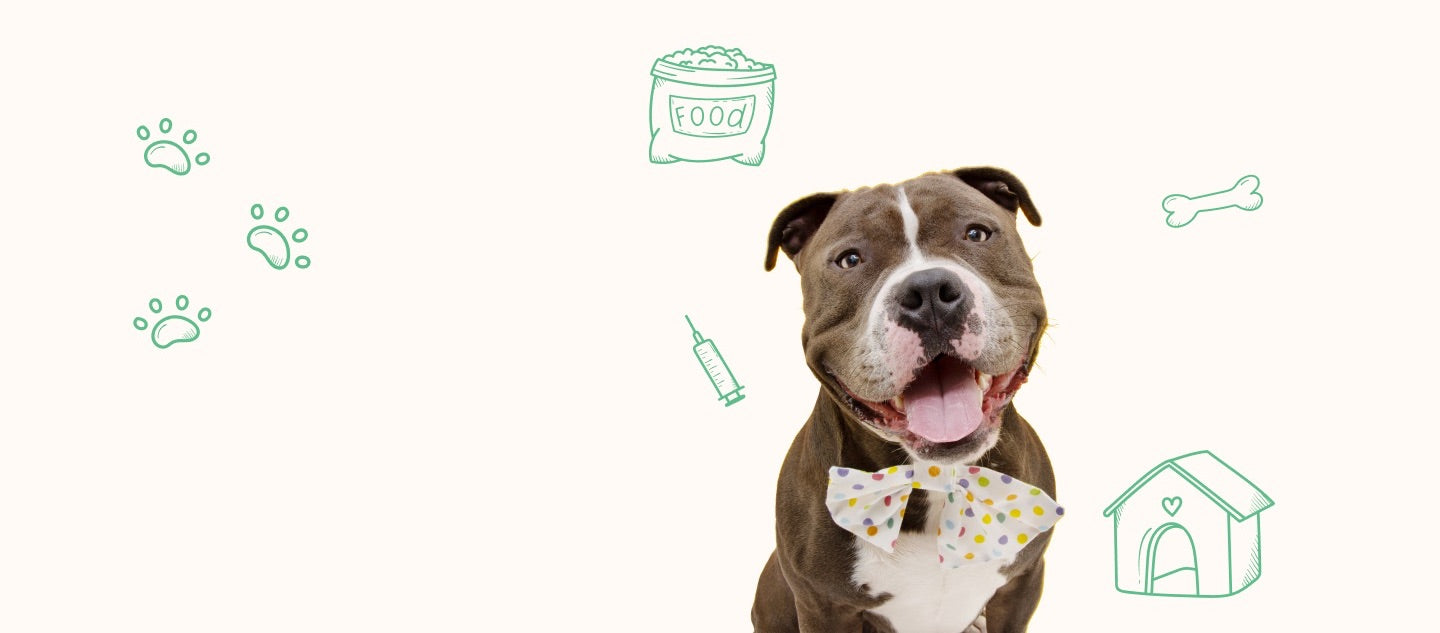It is an exhilarating moment when you bring a new dog home for the first time. Both you and your pooch will be introduced to new and exciting experiences! In order to assure a successful introduction, you’ll want to prep the house in advance and plan out the big day so that your new pawl will have a comfortable transition into their furever home.
Pup-Paring Your Home
- Discuss household responsibilities. Caring for a doggie is a task for the whole family. Determine a schedule for feeding times and who will take the pup on a walk at certain times of the day. If workdays mean no one will be home for hours on end, discuss taking your pup to doggie daycare to meet their social needs and provide a much needed energy outlet. Consistency is important when it comes to dogs, once you’ve got a plan do your best to stick to it.
- Determine house rules and vocabulary list. Everyone should be on the same page when it comes to what the dog is and isn’t allowed to do. It can be cute when your 15 lbs puppy jumps on you, but it may become a frustrating and hard to break habit when they grow to be 50+ lbs. Keep in mind everyone interacting with your dog also needs to work on teaching the same behavior. If you want your dog to stay off the furniture, but someone else lets them get away with it, then they are not likely to learn. Vocabulary is also important, if you tell your dog ‘down’ when they get on the couch, and someone else says ‘sit down’ for the pup to put his rear on the floor, they may be confused at which to do!
- Choose the right breed and age. Different breeds and ages of dogs require varying levels of training and effort in care. With a puppy you’ll need to be certain someone can be home most times of the day for exercise, potty training, etc. Some breeds also require more exercise and diligent training than others. If you aren’t normally active, it may better suit you to get a calmer breed. It’s worth putting some research into a dog that will match your lifestyle. You owe it to yourself and your future pooch.
- Get supplies ready. Purchase everything your new pet may need. Food, bowls, leash, collar, ID tag, treats, toys, bed, grooming supplies (longhaired dogs need to be brushed daily), crate, gate, odor neutralizer for potential accidents, potty pads if you plan to use them, and anything else you can think of! When purchasing food, if you are planning on starting them on a new diet, ask what they have previously been eating and purchase a bag of that as well as the new food. In order to avoid an upset tummy, you will have to transition the food slowly. You can also purchase pumpkin cans from the pet store to help make the transition easier.
- Dog-Proof your home. Just as you would ‘baby-proof’ for a toddler, you’ll want to spend some time ensuring that your home is safe so your new pooch won’t accidentally hurt themselves. Move any cleaning agents or other household chemicals to high shelves or locked cabinets; same goes for plants and any breakable items. Everything should be far enough out of reach, even if your pup stands on their hind legs. Tape down electrical cords to baseboards, and install gates in any doorless area you want your pooch to stay out of (make sure they can’t jump them!). Once you think the house is ready, get down on the floor and look around from a dog’s point of view to double check!
- Pick a veterinarian. Your doggie will need annual check-ups and vaccinations to assure that they stay in the best of health. Look for vets in your area and check out reviews in order for you to be sure they provide the quality care you’re looking for. It’s also a good idea to write down the number of the closest 24 hour animal hospital in case of emergencies. Your new pet should have their first check-up within your initial week of having them, remember to set an appointment as soon as you can.
- Plan ahead.. Eventually there will come a time when you and the family will travel and not be able to bring your furry family member. When that time comes, our doggie hotel is ready to give them their own great vacation! Also, don’t forget that dogs need a bath once to twice a month and your especially hairy family members will need grooming at least every one to two months, in which case you can bring them to our full service grooming salon for puppy pampering!
Spending Time With Your New Best Friend

- Take time off to help your dog get comfortable. Plan on bringing your new pooch home at the beginning of a day off so you can devote the whole day, or even a few days, to helping them get used to their new home. On the ride home, have them in the back seat either in a doggie seatbelt or a crate/carrier. Remember, consistency is key. If your pup isn’t used to car rides they may jump and claw all over you if someone tries to hold them. It’s in their best interest to have them get used to being secure in car rides from the start.
- Let them explore their home. Within the first moments home, you’ll want to show your pup where the potty place is. If you skip this step, you may have an accident in the house from a dog that doesn’t know any better! Once they go for the first time, congratulate them! This will help them associate that pottying outside is a good thing. After, allow the pupper to sniff all the corners of the home to get used to their new surroundings.
- Balance the loving attention with periods of alone time. It’s exciting to have a new puppy and you may want to spend all the time of the day with them, but doing so may either overwhelm them or create a dog that has major separation anxiety the moment you leave them alone. Take a break from playtime and pets and let the dog spend time on their own, perhaps in a separate room or maybe their crate. Crates can become a ‘safe space’ for dogs, who are instinctively den animals. Make sure it’s roomy enough for them to stand and turn, and put in a cozy bed for comfort. It may be hard, but don’t give in and come running the moment your puppy starts crying! Always reward good, calm behavior with pets, a toy, or treats.
- Keep an eye on your dog’s habits. Getting to know what normal is like for your pup will help you understand better if they ever don’t quite feel themselves. Keeping a watchful eye also helps to catch any unwanted behavior and nip it in the bud fast. When they get in trouble, don’t lose your cool. They understand how you feel when you speak with them in a loud and disapproving manner. Signing them up for a dog obedience class or training can also help break unwanted habits and get you closer to a well-behaved pooch.
- Have patience. Both you and your dog are getting to know each other through new experiences together. It may take them some time to adjust, try not to have rushed expectations. Despite all the messes they may make, having a best friend give you unconditional love and loyalty matched by no other is worth it.


